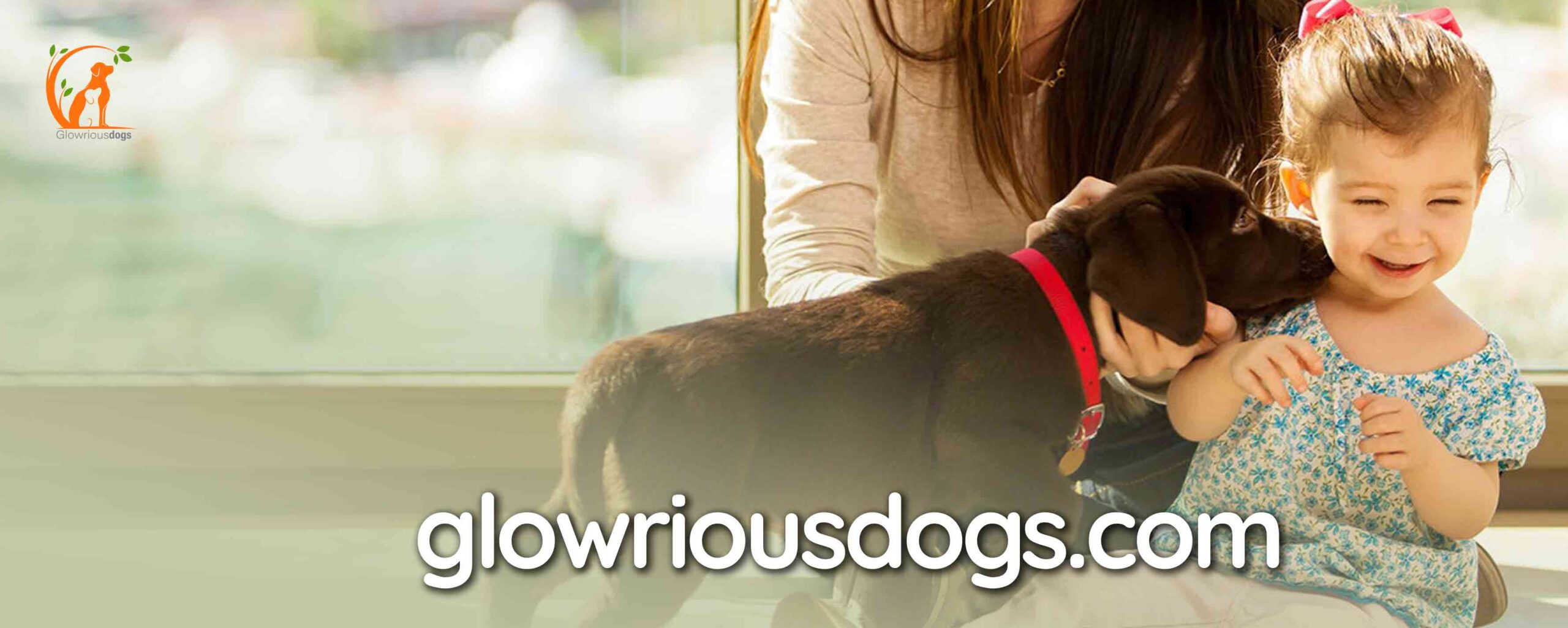Dogs may act like babies due to their natural instincts and the way they are trained and treated by their owners. Many dog owners have had this experience: your furry friend behaves like a baby, demanding attention, whining or crying, and constantly seeking your affection.
But why does your dog act this way? The answer lies in their instincts and the way they are trained and treated. Dogs, being domesticated animals, have evolved to rely on humans for survival. They understand that by acting like a baby, they can get your attention and care.
Additionally, some dogs might have been trained or conditioned to act this way, either intentionally or unintentionally, by their owners. We will explore the reasons behind this behavior and discuss how to address it in a positive and healthy manner for both you and your canine companion. So, let’s dive in and understand why dogs sometimes act like babies.
Understanding The Behavior Of Your Dog
Understanding the behavior of your dog is crucial to building a strong bond and providing appropriate care. Dogs, like babies, have certain behavior patterns that are influenced by various factors. One similarity between dog and baby behavior is their need for attention and affection. Just like babies, dogs seek comfort and reassurance from their owners. They may exhibit baby-like behavior, such as whining, clinging, or seeking attention in order to get the love and care they desire.
Several factors can contribute to a dog behaving like a baby. These include breed characteristics, past experiences, and the environment in which they are raised. For example, some smaller dog breeds are known to exhibit more baby-like behavior due to their size and vulnerability. Similarly, dogs that have been coddled or spoiled in the past may continue to display baby-like tendencies.
Common triggers for dogs behaving like babies include boredom, separation anxiety, and lack of socialization. When dogs feel bored or anxious, they may resort to attention-seeking behaviors, just like babies. Lack of proper socialization can also contribute to a dog’s baby-like behavior, as they may not have learned appropriate ways to interact with their surroundings.
Emotional Needs Of Dogs That Resemble Babies
Just like human babies, dogs have emotional needs that require attention and care from their owners. Dogs are naturally dependent on their owners for their well-being, much like babies rely on their parents. They crave attention and affection, constantly seeking reassurance and love from their human counterparts. Owners play a crucial role in fulfilling their emotional needs, ensuring they feel safe and secure in their environment.
Dogs desire constant attention and affection from their owners. They thrive on the love and care they receive and can become anxious or stressed if their emotional needs are not met. Providing them with regular physical and mental stimulation helps fulfill their emotional requirements and strengthens the bond between the dog and the owner. Similarly, dogs also need comfort and security to feel safe in their surroundings, just like human babies seek the same from their caregivers.
Exploring Possible Explanations For Dogs Acting Like Babies
Dogs often exhibit behaviors that are reminiscent of human babies, and there are several possible explanations for this intriguing phenomenon.
One reason why dogs may act like babies is to seek fulfillment of their needs. Just like infants, dogs rely on their owners for food, water, shelter, and affection. By exhibiting baby-like behaviors such as whining, crying, or seeking attention, dogs can effectively communicate their needs to their human companions.
Another possible explanation is attention-seeking behavior. Dogs are social animals who crave interaction and companionship. Acting like a baby may be a way for them to capture their owner’s attention and elicit a response. By displaying behaviors such as pawing, nudging, or sitting in someone’s lap, dogs can successfully draw attention to themselves.
Attachment and separation anxiety can also contribute to dogs acting like babies. Dogs that are strongly bonded to their owners may experience anxiety when separated from them. Adopting infant-like behaviors such as crying, clinginess, or seeking constant physical contact can be their way of coping with the stress and seeking reassurance.
Overall, dogs acting like babies can be attributed to their natural instincts, desire for attention, and emotional attachment to their human companions.
Providing Solutions And Tips For Dealing With A Dog Acting Like A Baby
Does your dog act like a baby? Don’t worry, you’re not alone. Many dog owners face this behavior and wonder how to handle it. The key is to provide your furry friend with adequate exercise and mental stimulation. Dogs need physical activity to burn off excess energy and mental stimulation to keep their minds engaged. Make sure to incorporate daily walks, play sessions, and interactive toys into your dog’s routine.
Establishing consistent routines and boundaries can also help address this behavior. Dogs thrive on structure, so create a consistent schedule for feeding, potty breaks, and playtime. Set clear boundaries and be consistent with enforcing them. This will help your dog understand their place in the family hierarchy.
Positive reinforcement training techniques are another valuable tool. Reward your dog for good behavior, and redirect and ignore negative behavior. This approach encourages your dog to make positive associations and learn appropriate behaviors.
Understanding The Impact Of Human Interaction On Dogs’ Behavior
Understanding the impact of human interaction on dogs’ behavior is crucial for pet owners. One common behavior that puzzles many dog owners is when their dogs act like babies. Pampering and babying dogs has a direct effect on their behavior. When dogs are treated like babies, they may become overly dependent on their owners and display immature behaviors.
Another important factor is socialization. Dogs that have been well-socialized are more likely to have a balanced and confident behavior. It is important to expose dogs to various experiences, environments, and people to reinforce positive behavior and reduce fear or aggression.
Furthermore, setting realistic expectations for your pet is essential. Dogs are not humans, and they have their own unique needs and behaviors. It is important to provide them with appropriate training and guidance, understanding their natural instincts and tendencies.
| Pampering and Babying Dogs | Socialization | Realistic Expectations |
|---|---|---|
| Pets may become overly dependent, displaying immature behaviors. | Well-socialized dogs are more confident and have balanced behaviors. | Appropriate training and guidance understanding their natural instincts and tendencies. |
Seeking Professional Help For Dogs Exhibiting Baby-like Behavior
Seeking Professional Help for Dogs Exhibiting Baby-like Behavior
Dogs can sometimes exhibit behavior that resembles that of a baby, leaving their owners perplexed and looking for answers. While certain behaviors can be attributed to normal puppy or adolescent dog development, there may be underlying issues that require professional assistance. Consulting a veterinarian or an animal behaviorist is recommended if your dog’s baby-like behavior:
- Appears to be excessive or abnormal
- Persists for an extended period of time
- Causes distress or poses risks to the dog’s health or well-being
| 1. Health conditions: | Some medical conditions like urinary tract infections or gastrointestinal problems can manifest as baby-like behavior. A veterinarian can evaluate your dog’s health and rule out any underlying medical issues. |
| 2. Pain or discomfort: | Dogs in pain may exhibit behaviors similar to babies seeking comfort. A thorough examination by a veterinarian is crucial to identify and address any sources of pain or discomfort. |
Animal behaviorists can provide guidance and develop tailored behavior modification plans to manage baby-like behaviors. These may include:
- Positive reinforcement training to redirect and reinforce desired behaviors.
- Implementing consistent routines and boundaries to establish structure.
- Providing mental and physical stimulation through interactive toys and activities.
Remember, seeking professional help is key to understanding and addressing your dog’s baby-like behavior in a safe and effective manner.
Conclusion
It’s no surprise that dogs sometimes exhibit behaviors that seem similar to those of human babies. From seeking attention to expressing dependence, our furry friends may act like babies for a variety of reasons. Understanding why your dog acts this way can help you strengthen the bond you share and meet their needs effectively.
By paying attention to their behavior, providing proper care, and seeking professional guidance if necessary, you can ensure a happy and healthy relationship with your beloved canine companion.
Frequently Asked Questions Of Why Does My Dog Act Like A Baby
Why Does My Adult Dog Act Like A Baby?
Adult dogs may exhibit baby-like behaviors due to various reasons like seeking attention, feeling anxious, or being unsure of their environment. This could include whining, cuddling, or demanding extra care. Proper training and understanding their needs can help address these behaviors.
How Long Will My Dog Act Like A Puppy?
Your dog will act like a puppy for about one to two years, depending on their breed and size. Enjoy their energetic behavior while it lasts!
Do Dogs Like Being Carried Like Babies?
Some dogs may enjoy being carried like babies, but it depends on the individual dog’s preferences. It’s best to observe your dog’s behavior and body language to determine if they are comfortable with this. Always be gentle and supportive when handling your dog.
Do Dogs Always Act Like Puppies?
Dogs don’t always act like puppies. As they grow, their behavior changes to match their age.











